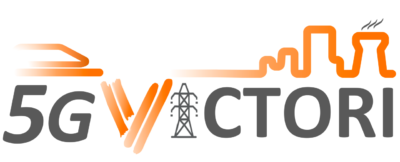On 4th October, the 5G-VICTORI team performed a successful field trial in Bristol (UK) showcasing the UC #1.2: Digital Mobility...
i2CAT Foundation
i2CAT Foundation, Internet and Digital Innovation in Catalonia


The i2CAT Foundation is a non-profit technology and innovation centre located in Barcelona, Spain, which promotes R+D+i activities in Internet Technologies within the ICT industry. The centre stands up for a new model in a new conception of innovation: the collaboration between companies, public administration, the academic environment and end-users. Thus, it eases an open innovation framework, characteristic of the Internet culture. The vision of i2CAT is to achieve Internet excellence in research and innovation activities applied to the market needs, and become an international strategic partner driving the deployment of the Internet across the economic, industrial and social sectors. Its board is based on an open innovation collaboration model ranging in all sectors mentioned before. Some board members are: Cisco, Orange, Fujitsu, Juniper and Vodafone, plus four Catalan government departments and the three main technical universities of Catalonia, led by Universitat Politècnica de Catalunya (UPC). i2CAT’s activities are concentrated around, but not limited to, novel network services and technologies (fixed and mobile), open access networks, sensor networks, e-health, networked media systems and industrial Internet, with special focus on NFV and SDW/N technologies, new clean slate architectures, Future Internet experimentation, sensor networks, IoT, M2M, with EC footprint in 68 projects (1 FP6, 31 FP7, 25 H2020, 6 CIP and 5 in other EU areas), being 11 of them coordinated projects.
The strategic goals of i2CAT are:
i2CAT’s main values are:
i2CAT will participate in the Railways and Media use cases carried out in Bristol, providing SDN WiFi technology that will contribute to the pop-up network concept. This technology has been developed in the 5GPPP phase 1 project 5G-XHaul, and the 5G-PPP phase 2 project 5G-PICTURE. In particular, i2CAT will contribute to:
In 5GVICTORI, two areas of i2CAT will be involved:
The Mobile Wireless Internet (MWI) research area has developed more than 50 projects in the field of wireless communications in collaboration with UPC Barcelona Tech since 2013, as well has high expertise in technology transfer of Wireless Networks Technologies collaborated with Alstom, Alcatel, Vodafone Telefónica, Endesa, and Abertis, among others. Its main areas of expertise are Wireless Sensors Networks (WSN) and high capacity wireless access technologies that are key enablers for the future Internet of Things and future 5G systems. MWI’s expertise spans from the physical design of embedded systems, applications of wireless technologies to indoor location, driver level optimizations of broadband wireless technologies based on IEEE 802.11, software defined networking and vehicular communications. Among the main market sectors impacted by the technology of the Mobile Wireless Internet Area we find: Smart Cities, Smart Building, Smart factories and Mobile networks. The MWI group has been heavily involved in the 5GPPP program contributing to projects like 5G-XHAUL, SESAME, 5G-PICTURE and 5G-ESSENCE.
The Software Networks (SN) research area focuses on exploring and defining new ways to manage the Future Internet networks, enabling new functionalities and new infrastructure business models by means of SDN and NFV technologies, deploying experimental infrastructures for the research and innovation on network technologies, enabling the testing and validation of advanced Internet services and applications, and developing new pioneer Internet architectures, based on new paradigms beyond current technologies. It has experience in several national and international collaborative projects, mainly related to the 5G area of heterogeneous network management in multi-tenant environments, network abstraction through software objects and models, network convergence, multi-cloud service provisioning, multi-access edge computing, network function virtualization, and software-defined networking. Just to name few, SN is/was the project coordinator of H2020 5GPPP 5GCITY and CHARISMA, WP leader on H2020 5GPPP SESAME, SONATA and task leader on H2020 5GPPP SaT5G and 5G-ESSENCE.
On 4th October, the 5G-VICTORI team performed a successful field trial in Bristol (UK) showcasing the UC #1.2: Digital Mobility...
Network slicing is widely considered as one of the main drivers fostering the adoption of 5G technologies. In particular, the...
Large scale trials for Railway, Energy, Media and Factories of the Future planned 5G-VICTORI is funded by the EU program...

This project has been funded by the European Commission as part of the H2020 program, under the grant agreement 857201.


© 2020 5G-VICTORI
